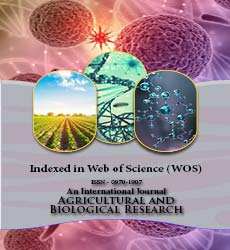Agricultural and Biological Research
RNI # 24/103/2012-R1
Radali Duarah*, Dipankar Saikia and Yashmin Nongrum
Aim/Background: Polycystic Ovary Syndrome (PCOS) is a heterogeneous disorder characterized by hyper-androgenism and chronic anovulation. It is the most common endocrine disorder and metabolic heterogeneous disorder among reproductive-aged women, with likely genetic origin influenced by environmental factors including diet, lifestyle and social status. It aims to provide the clinical picture of the role of diet in polycystic ovary syndrome among women and adolescents in the world through documented cases.
Materials and methods: Using the databases of Science Directs, Research Gate, PubMed and Google Scholar, epidemiological studies focusing on the isolation and identification of cases linked to diet and polycystic ovary syndrome in women and adolescents between 2004 and 2022 were thoroughly evaluated.
Findings: A total of 512 articles regarding the prevalence of PCOS and nutrition in India and throughout the world can be discovered in the Google databases. The study took into consideration of 71 relevant articles for the purpose of the study.
Conclusion: Establishing the prevalence of relation between nutrition and PCOS is considered an important tool for developing evidence-based awareness among the public. Also, the existence of surveillance studies for these is an important step in assessing the health of the population as a whole.
